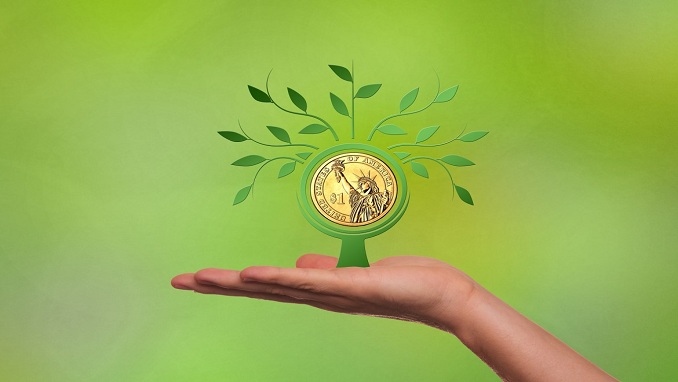A consultative draft of Russian green finance guidelines has been published, which includes controversial practices such as upgrades to thermal power plants, and coal to natural gas conversion, Environment Finance reported.
The guidelines have been developed by Russian state development corporation VEB.RF, which first outlined the proposals to Environmental Finance in April this year.
This most recent version is a ‘technical’ draft and awaits approval by the Russian government. However, VEB.RF says it has already started to adopt the guidelines in its own lending practices. The first green credit based on the guidelines is expected in the next month.
The move by Russia comes as numerous parts of the world are developing green taxonomies to stimulate the flow of finance to sustainable activities. The best known is the EU Taxonomy for green activities, which secured final approval from the European Parliament after two years of negotiation last month, ahead of official standards coming into force from 2022, but countries such as Canada and China also have their own taxonomies or are creating them.
The different taxonomies often define green in different ways, with some more accepting of fossil fuels than others.
In the Russian taxonomy, green finance may be sought for any ‘increase in energy and ecological efficiency and reduction in harmful emissions of thermal power plants.’ Additionally, finance may be obtained for coal to natural gas conversion in the energy sector.
In 2019 a ‘climate action bond’ issued by natural gas infrastructure company Snam that included use of proceeds for biomethane and energy efficiency did not make a list of issues the Climate Bonds Initiative regarded as aligned with its goals.The Russian taxonomy is divided into nine categories – waste management and recycling, energy, construction, industrial production, transport, water supply and wastewater disposal, forestry, conservation of natural landscapes and biodiversity, and information and communication technologies.
The energy category includes renewables sources such as solar and wind, as well as other forms that have encountered controversy in Europe for potentially breaching ‘do no significant harm’ principles or potentially having limited positive effect, such as biomass.
Verification must be performed in order to certify the financial instruments intended to be classified as green finance under the guidelines. Based on its results, the verifier issues an opinion, which in turn serves as a basis for a VEB.RF decision to certify the financial instrument.
“Today Russia is at the very beginning of the creation of green market architecture,” said Cesare Ragaglini, vice-chairman of VEB.RF. “The needs as well as the opportunities for green projects in Russia are enormous. It is important for our guidelines to be recognised by international investors, therefore, we put a strong emphasis on transparency and the green standard being created in Russia will be harmonised with the existing international standards.
“This will allow [us] to attract international investors to climate and environmental protection projects in Russia. We believe that the unprecedented challenge posed by the green agenda should be addressed with unprecedented cooperation among countries across the borders,” the vice-chairman added.
The Russian state has also instigated a four-year “Ecology” plan that has set ambitious goals since its inception in 2019, including shutting down all illegal waste dumps, reprocessing at least 60% of all solid communal wastes, reducing pollutants in the air by 22%, cleaning and restoring major waterways, and a 61% reduction of forest fire damage.
According to Igor Shuvalov, chairman of VEB.RF, the corporation has a set of targets to support “Ecology”: helping attract RUB3.2 trillion ($45 billion) from domestic and international markets; making green bonds and other debt instruments focused on renewables more attractive and popular; and promoting the development of new technologies that will make the Russian economy less dependent on fossil fuels.












